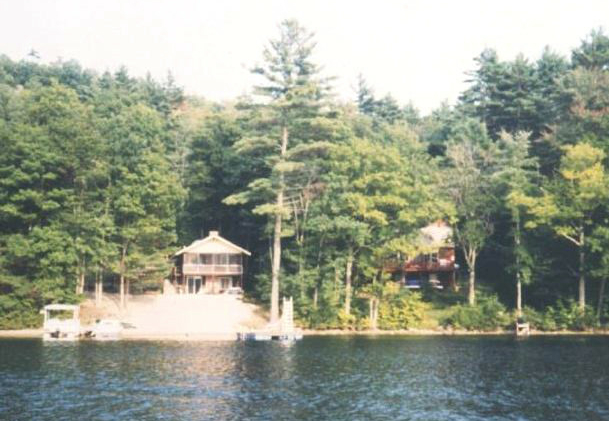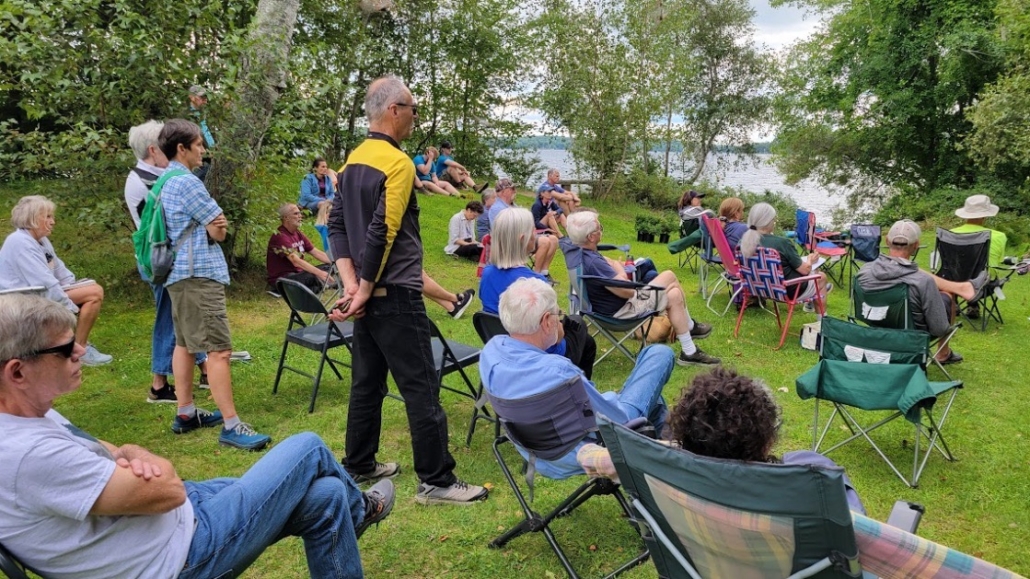Beef up your buffer

Vegetated buffers along a shorefront (cottage on right) reduce pollution and sedimentation, as well as providing habitat for pollinators and other wildlife. (photo courtesy of Androscoggin Valley SWCD)
Runoff from gravel road and shoreland homesites is the Number 1 cause of lake, pond and stream pollution in the state of Maine. Water travelling over the surface of roads and yards carries nutrients and other pollutants into waterbodies; soil from erosion is carried in runoff and results in sedimentation, as well as carrying phosphorous, a limiting nutrient for algal blooms. This spring has provided the opportunity to see where that runoff from roads and homesites is originating – and the opportunity to do something about it.
On Thursday, July 25, at 7 p.m., in the Bryant Room, at Gibbs Library, 40 Old Union Rd., in Washington, the Washington Lakes Association annual meeting will present Vegetated Buffers for Lake Water Quality by Hildy Ellis, program manager for Knox-Lincoln Soil & Water Conservation District. This slide presentation will demonstrate how landowners can improve water infiltration on shorefront properties with a vegetated buffer of native plants. Vegetated buffers will stabilize shoreland soils, absorb water and nutrients, trap excess soil, provide wildlife habitat – including pollinators – and mimic natural systems to create a dynamic landscape to enjoy in all seasons.
The public is invited to join members of the Washington Lakes Association for this free program. For more information about the program and the Washington Lakes Association, contact Charlotte Henderson at 845-2661.
Responsible journalism is hard work!
It is also expensive!
If you enjoy reading The Town Line and the good news we bring you each week, would you consider a donation to help us continue the work we’re doing?
The Town Line is a 501(c)(3) nonprofit private foundation, and all donations are tax deductible under the Internal Revenue Service code.
To help, please visit our online donation page or mail a check payable to The Town Line, PO Box 89, South China, ME 04358. Your contribution is appreciated!



Leave a Reply
Want to join the discussion?Feel free to contribute!